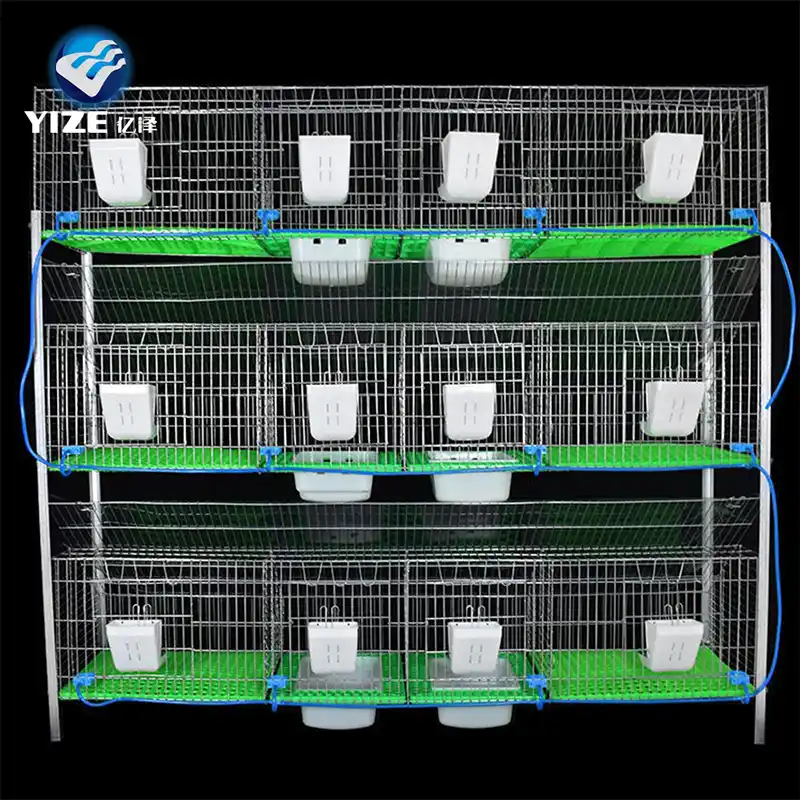chicken transportation cages
Dec . 10, 2024 10:40 Back to list
chicken transportation cages
The Importance of Chicken Transportation Cages in Poultry Industry
The poultry industry plays a vital role in meeting the global demand for chicken meat and eggs. With billions of chickens raised worldwide, the safe and humane transportation of these birds is paramount. One of the key elements in ensuring the well-being of chickens during transit is the use of specialized chicken transportation cages. These cages are designed to provide comfort, safety, and ease of handling for both the birds and the workers involved in the process.
Ensuring Animal Welfare
Animal welfare is a growing concern among consumers, regulators, and industry stakeholders. Properly designed chicken transportation cages are crucial in minimizing stress on the birds during transport. These cages are typically constructed from durable and easy-to-clean materials that allow for adequate ventilation and light. This is important because chickens can become stressed in dark, cramped conditions, which can affect their overall health and wellbeing.
Furthermore, the design of these cages often allows each bird to have enough space to stand, turn, and lie down comfortably. According to animal welfare guidelines, providing adequate space reduces the likelihood of injury and stress-related behaviors. By prioritizing animal welfare, the poultry industry can enhance the quality of meat and eggs produced, as stressed animals are more prone to illness and reduced productivity.
Safety and Security
In addition to considering animal welfare, safety is a significant factor in chicken transportation cages. Transportation involves various risks, from accidents during transit to the potential for harmful conditions. Cages are designed to secure the birds properly, reducing the chance of injury during transport.
Modern chicken transportation cages often feature reinforced structures that prevent escape and provide stability during movement. Some advanced models include features like shock absorbers to minimize the impact of bumps and jolts on the birds. This attention to design enhances not only the safety of the chickens but also the efficiency of the transportation process, contributing to lower damage rates and better overall outcomes.
chicken transportation cages

Regulatory Compliance
The poultry industry is subject to numerous regulations aimed at ensuring humane treatment of animals. Most countries have specific guidelines regarding the transportation of livestock, including chickens. These regulations often stipulate the types of cages that are permissible and their required dimensions, ventilation, and sanitation features.
Using transportation cages that comply with these guidelines not only helps companies avoid penalties but also improves their marketability. As consumers become increasingly informed and concerned about animal welfare, businesses that adhere to ethical practices are often rewarded with consumer loyalty. Therefore, investing in high-quality chicken transportation cages can be seen as both a regulatory necessity and a marketing strategy.
Environmental Considerations
The environmental impact of the poultry industry is a topic of discussion in today’s world. Sustainable practices are essential for the future of food production. Chicken transportation cages contribute to environmental sustainability in several ways. Many manufacturers are now creating cages from recyclable and eco-friendly materials, reducing the environmental footprint associated with their production and disposal.
Moreover, efficient design leads to better space utilization during transport. This can result in fewer trips needed for transportation, ultimately decreasing the carbon emissions associated with poultry movement. Additionally, well-designed cages can facilitate automatic loading and unloading processes, further streamlining operations and reducing energy consumption.
Conclusion
In summary, chicken transportation cages are an essential component of the poultry industry that serves multiple crucial purposes. They ensure the welfare and safety of chickens during transit, comply with regulatory standards, and contribute to sustainability efforts within the industry. As consumer awareness of animal welfare grows, the importance of these cages will only increase, making it essential for businesses to prioritize the use of humane and efficient transportation solutions. By investing in high-quality transportation cages, the poultry industry can not only enhance the lives of the animals it raises but also improve operational efficiency and meet the expectations of a more conscious consumer base.
-
Automatic Feeding Line System-Pan Feeder Nipple Drinker|Anping County Yize Metal Products Co., Ltd.
NewsJul.29,2025
-
Hot Sale 24 & 18 Door Rabbit Cages - Premium Breeding Solutions
NewsJul.25,2025
-
Automatic Feeding Line System Pan Feeder Nipple Drinker - Anping County Yize Metal Products Co., Ltd.
NewsJul.21,2025
-
Automatic Feeding Line System Pan Feeder Nipple Drinker - Anping County Yize Metal Products Co., Ltd.
NewsJul.21,2025
-
Automatic Feeding Line System - Anping Yize | Precision & Nipple
NewsJul.21,2025
-
Automatic Feeding Line System - Anping Yize | Precision & Nipple
NewsJul.21,2025






